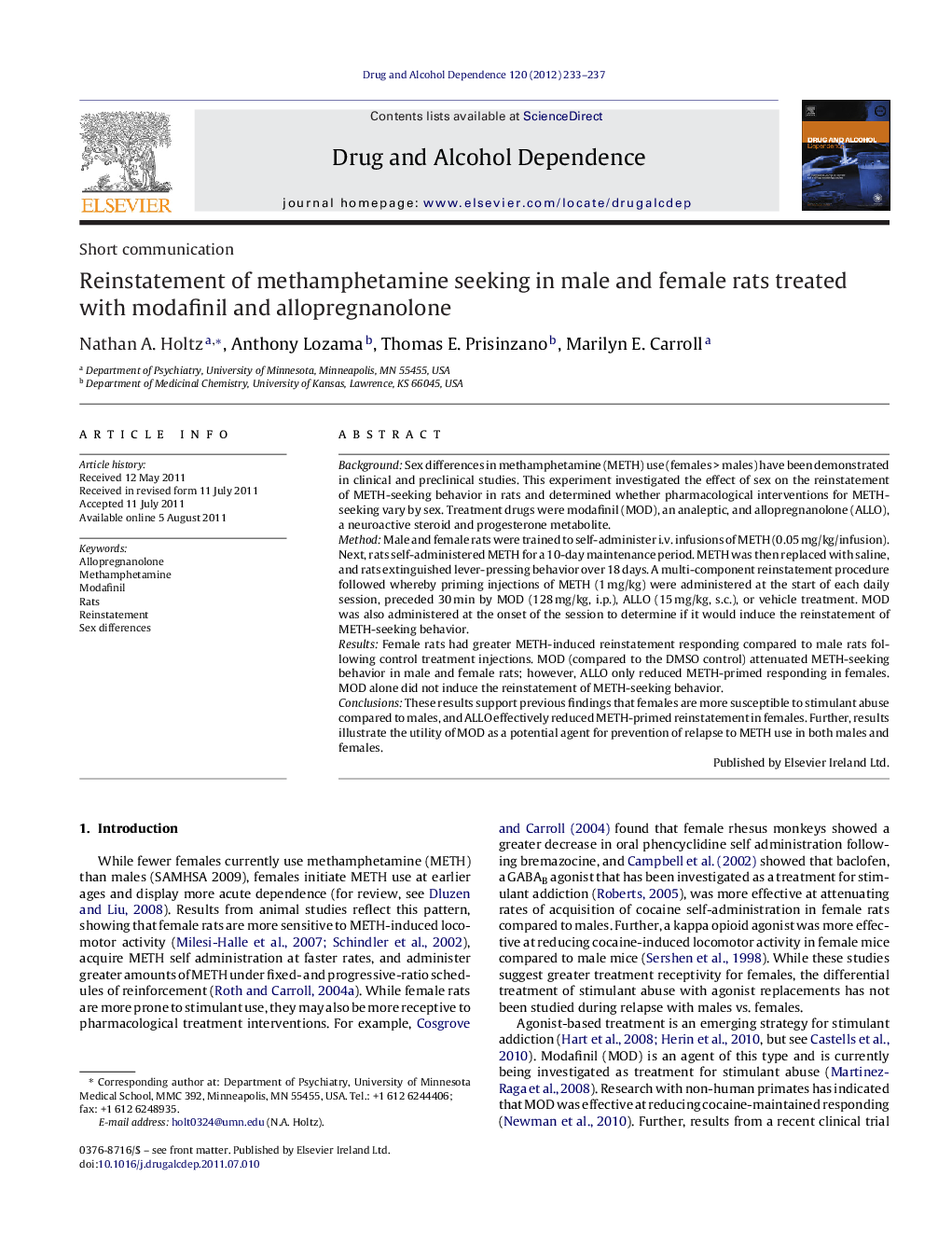| Article ID | Journal | Published Year | Pages | File Type |
|---|---|---|---|---|
| 1070211 | Drug and Alcohol Dependence | 2012 | 5 Pages |
BackgroundSex differences in methamphetamine (METH) use (females > males) have been demonstrated in clinical and preclinical studies. This experiment investigated the effect of sex on the reinstatement of METH-seeking behavior in rats and determined whether pharmacological interventions for METH-seeking vary by sex. Treatment drugs were modafinil (MOD), an analeptic, and allopregnanolone (ALLO), a neuroactive steroid and progesterone metabolite.MethodMale and female rats were trained to self-administer i.v. infusions of METH (0.05 mg/kg/infusion). Next, rats self-administered METH for a 10-day maintenance period. METH was then replaced with saline, and rats extinguished lever-pressing behavior over 18 days. A multi-component reinstatement procedure followed whereby priming injections of METH (1 mg/kg) were administered at the start of each daily session, preceded 30 min by MOD (128 mg/kg, i.p.), ALLO (15 mg/kg, s.c.), or vehicle treatment. MOD was also administered at the onset of the session to determine if it would induce the reinstatement of METH-seeking behavior.ResultsFemale rats had greater METH-induced reinstatement responding compared to male rats following control treatment injections. MOD (compared to the DMSO control) attenuated METH-seeking behavior in male and female rats; however, ALLO only reduced METH-primed responding in females. MOD alone did not induce the reinstatement of METH-seeking behavior.ConclusionsThese results support previous findings that females are more susceptible to stimulant abuse compared to males, and ALLO effectively reduced METH-primed reinstatement in females. Further, results illustrate the utility of MOD as a potential agent for prevention of relapse to METH use in both males and females.
